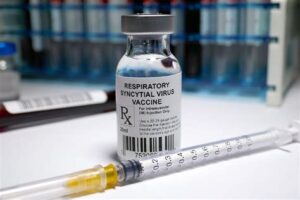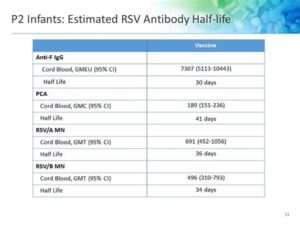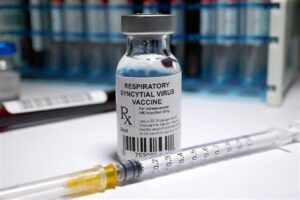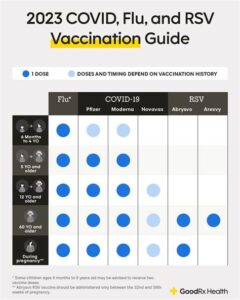Explore the essentials of RSV infection, vaccination benefits, associated risks, and expert recommendations for effective RSV vaccination strategies. Stay informed and protected!Respiratory Syncytial Virus (RSV) is a common yet often overlooked viral infection that can have serious implications, particularly for vulnerable populations such as infants, the elderly, and those with weakened immune systems. As we navigate the complexities of RSV, many individuals wonder about the necessity of vaccination, especially if they’ve previously contracted the virus. This blog post aims to clarify the relationship between having had RSV and the potential benefits of getting vaccinated. We will delve into the nature of RSV infection, the risks associated with it, and the advantages of receiving the RSV vaccine. Additionally, we’ll discuss recommendations for vaccination to help you make informed decisions about your health and protection against this viral threat. Join us as we explore the significance of RSV awareness in promoting better health outcomes for all.
Understanding RSV Infection
Respiratory Syncytial Virus (RSV) is a common virus that primarily affects the respiratory tract, particularly in infants, young children, and even older adults. It’s crucial to understand how RSV infection manifests and can impact one’s health, especially among vulnerable populations.
Symptoms of RSV often resemble those of a cold, including runny nose, cough, and fever. However, in some cases, particularly among infants and those with weakened immune systems, RSV can lead to more severe conditions such as bronchiolitis or pneumonia. The virus spreads easily through respiratory droplets, making it a significant public health concern during the colder months when outbreaks tend to occur.
According to health experts, the majority of children will have had an RSV infection by the age of two. While many recover without the need for hospitalization, it is essential to monitor symptoms closely, especially in high-risk groups. If you’re wondering about the relationship between past infections and vaccination, it’s important to consider the protective benefits that an RSV vaccine may offer even for those who have previously contracted the virus.
RSV and Vaccination
Respiratory Syncytial Virus (RSV) is a common virus that causes respiratory infections, particularly in infants and young children. Understanding the implications of having had RSV and the role of vaccination is crucial for parents and caregivers. The question arises: if I had RSV, do I need the vaccine?
The short answer is: yes, vaccination against RSV is still recommended even if a person has previously experienced an RSV infection. This is largely because the body doesn’t develop sufficient immunity to prevent future infections. The RSV vaccine is designed to provide enhanced protection, especially for those at high risk of complications, such as premature infants or children with underlying health issues.
Vaccination, especially with new advancements in RSV vaccines, not only helps in reducing the severity of the infections but also minimizes the risk of serious outcomes associated with RSV. The ongoing clinical studies are showing promising results, further emphasizing the importance of RSV vaccination. Those who have had an RSV infection may erroneously believe they are immune; however, getting vaccinated serves as a vital layer of defense for your health and the health of vulnerable populations.
Risk of RSV Infection
Respiratory Syncytial Virus (RSV) is a common virus that can lead to serious respiratory infections, especially in vulnerable populations such as infants, elderly individuals, and those with compromised immune systems. The risk of contracting RSV infection can vary significantly based on several factors, including age, health status, and environmental conditions.
For infants and young children, the risk of severe symptoms from RSV is heightened, potentially leading to hospitalization. According to the Centers for Disease Control and Prevention (CDC), nearly all children will have had an RSV infection by their second birthday, and many will experience symptomatic infections. Notably, RSV can be especially dangerous for preterm infants, as their lungs are less developed and more susceptible to infections.
Adults, particularly those over 65 or with underlying health issues such as chronic lung disease or heart conditions, are also at risk of severe RSV complications. Studies show that RSV can lead to approximately 14,000 deaths yearly among older adults in the United States alone. Therefore, understanding the risk factors associated with RSV can aid in prevention strategies and decisions regarding vaccination.
Benefits of RSV Vaccine
Respiratory Syncytial Virus (RSV) is a common and contagious virus that can cause severe respiratory infections, particularly in infants and older adults. The introduction of the RSV vaccine represents a significant advancement in protecting vulnerable populations from this potentially serious illness. Understanding the benefits of the RSV vaccine is crucial for informed healthcare decisions.
One of the primary advantages of the RSV vaccine is its ability to significantly reduce the incidence of RSV-related hospitalizations. Clinical studies have shown that vaccinated individuals have a lower risk of severe illness compared to those who remain unvaccinated. This is especially important for high-risk groups, including premature infants, children with chronic lung disease, and older adults with underlying health conditions.
Additionally, the RSV vaccine can help mitigate the overall burden on healthcare systems, particularly during RSV season. By lowering the number of severe cases, it frees up resources and reduces the strain on hospitals and emergency care facilities. This not only benefits patients but also helps ensure that medical professionals can provide optimal care to all patients in need, regardless of the illness.
| Benefits of RSV Vaccine |
|---|
| Reduces Hospitalizations |
| Protects Vulnerable Populations |
| Decreases Healthcare Burden |
In summary, the RSV vaccine plays a crucial role in preventing serious health complications associated with RSV infection. By understanding its benefits, individuals can make informed choices about vaccination, contributing to their health and the well-being of their communities.
Recommendations for RSV Vaccination
Respiratory Syncytial Virus (RSV) is a common virus that can cause significant respiratory illness, particularly in infants, young children, and older adults. Given the potential severity of RSV infections, vaccination is an important consideration. Here are some recommendations regarding RSV vaccination.
It is particularly recommended that infants at high risk of severe RSV infection should receive the RSV vaccine. High-risk factors include prematurity, congenital heart conditions, and chronic lung diseases. For these groups, the benefits of vaccination significantly outweigh any potential risks.
In addition, older adults, especially those over the age of 65 who have underlying health conditions, should also be evaluated for RSV vaccination. As their immune systems might be compromised, preventing RSV can help avoid hospitalization or severe health complications.
Finally, it is essential to consult with a healthcare provider to understand the best course of action based on individual health history and risk factors. Ensuring that those at greatest risk are vaccinated not only protects them but als
Frequently Asked Questions
What is RSV?
RSV stands for Respiratory Syncytial Virus, a common virus that causes respiratory infections in people of all ages, particularly in infants and young children.
What are the symptoms of RSV?
Common symptoms of RSV include runny nose, coughing, wheezing, fever, and difficulty breathing.
If I had RSV, do I still need to get vaccinated?
Yes, even if you have had RSV, vaccination is recommended as it can help prevent future infections and severe cases.
What type of vaccine is available for RSV?
As of now, several vaccines are in development, with some approved for high-risk populations; it’s best to consult your healthcare provider for the most current options.
Are there any side effects of the RSV vaccine?
Possible side effects of the RSV vaccine may include mild pain at the injection site, fever, and fatigue, but severe side effects are rare.
Who is recommended to receive the RSV vaccine?
The RSV vaccine is particularly recommended for high-risk groups, such as infants born prematurely, children with certain medical conditions, and older adults.
Can the RSV vaccine prevent all cases of RSV?
While the RSV vaccine can significantly reduce the risk of severe illness, it may not completely prevent all cases of RSV, but it helps mitigate serious complications.





